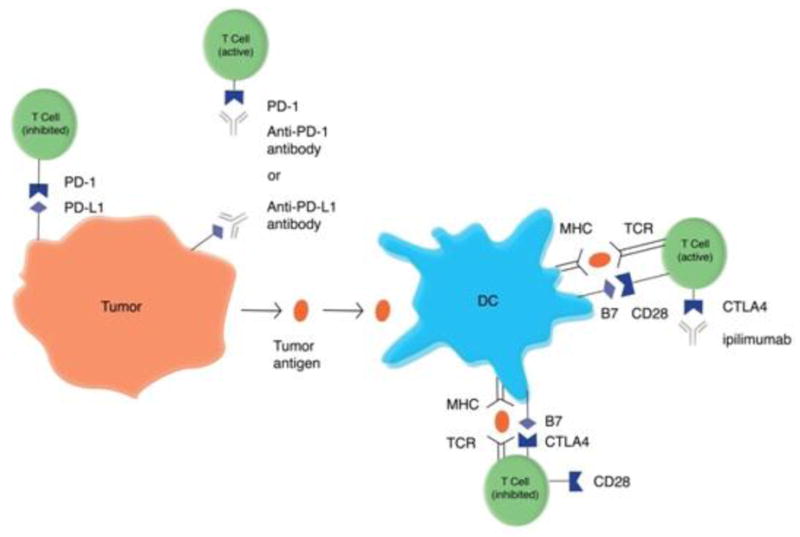Figure 1. Immune Checkpoint Blockade.

Inhibition of molecular “brakes” on the immune system with monoclonal antibodies is another important strategy under investigation in prostate cancer. Cytotoxic T-lymphocyte-associated antigen 4 (CTLA-4) is a cell-surface molecule on activated T cells, and negatively regulates T cell activation and proliferation. Blockade of CTLA-4 with ipilimumab enhances CD28 binding to B7 ligands and thus co-stimulatory signaling. Programmed death 1 (PD-1) is another T cell cell-surface molecule which interfaces with PD-1 ligands (including PD-L1 and PD-L2) found on tumor cells as well as stromal cells in the tumor microenvironment, leading to inhibition. Blockade of this interaction with antibodies directed against PD-1 or PD-1 ligands enhances T cell activation.
